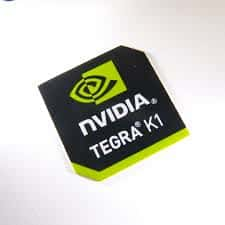NVIDIA Corporation (NVDA - Get Rating) provides graphics, computing, and networking solutions. The company’s segments include Graphics and Compute & Networking.
The Graphics segment includes GeForce graphics processing units (GPUs) for gaming and PCs. The Compute & Networking segment includes Data Center platforms and systems for artificial intelligence (AI), high-performance computing, and accelerated computing; Mellanox networking and interconnect solutions; automotive AI cockpit, autonomous driving development agreements, and autonomous vehicle solutions; cryptocurrency mining processors; Jetson for robotics, and NVIDIA AI Enterprise.
NVDA has provided weaker-than-expected guidance for the third quarter of fiscal 2023. It expects revenues of $5.90 billion, plus or minus $118 million, which means a nearly 12% sequential decrease. NVDA’s revenue guidance of $5.90 billion was also below the consensus estimate.
The company faced a significant decline in its graphics segment business, which led to a fall in revenue and gross margins in the last reported quarter. Falling demand for GPUs and pricing power led to the segment reporting a 44% sequential drop. A slowdown in GPU sales has been due to a decline in cryptocurrency mining and falling PC demand that has affected GPU pricing.
Earlier this month, the company reported that the U.S. government had imposed new export restrictions on two of its most advanced AI chips, namely Nvidia A100 and H100 graphic processing units, to China. The latest tech sanctions are going to have an adverse effect on its revenue as China is its second-largest market. The revenue hit is expected to be $400 in the current quarter.
According to a report, there could be a buffer period before the ban kicks in, which is why the company is pushing the production of the chips in question in order to sell them. This could help mitigate the revenue impact in the current quarter up to a certain extent.
NVDA’s shares have declined 55.2% in price year-to-date and 37.6% over the past year to close the last trading session at $131.76. It is trading 62% below its 52-week high of $346.47, which it hit on November 22, 2021.
Here’s what could influence NVDA’s performance in the upcoming months:
Disappointing Financials
NVDA’s non-GAAP gross profit declined 29.1% year-over-year to $3.07 billion for the second quarter ended July 31, 2022. Its non-GAAP operating expenses increased 38.1% year-over-year to $1.75 billion. The company’s non-GAAP net income fell 50.7% year-over-year to $1.29 billion. In addition, its non-GAAP EPS decreased 51% year-over-year to $0.51.
Mixed Analyst Estimates
NVDA’s revenue for fiscal 2023 and fiscal 2024 is expected to increase 0.7% and 16.6% year-over-year to $27.10 billion and $31.61 billion. Its EPS for fiscal 2023 is expected to decline 23.7% year-over-year to $3.39. However, its EPS for fiscal 2024 is expected to increase 34.8% year-over-year to $4.56.
Stretched Valuation
In terms of forward EV/S, NVDA’s 12.09x is 374.4% higher than the 2.55x industry average. Likewise, its 12.09x forward P/S is 380.8% higher than the 2.51x industry average. Its 51.45x EV/EBITDA is 321.3% higher than the 12.21x industry average.
POWR Ratings Reflect Bleak Prospects
NVDA has an overall D rating, equating to Sell in our POWR Ratings system. The POWR Ratings are calculated by considering 118 distinct factors, with each factor weighted to an optimal degree.
Our proprietary rating system also evaluates each stock based on eight distinct categories. NVDA has a D grade for Value, in sync with its stretched valuation.
It has a D grade for Stability, consistent with its 1.69 beta.
NVDA is ranked #77 out of 93 stocks in the Semiconductor & Wireless Chip industry. Click here to access NVDA’s ratings for Growth, Momentum, Sentiment, and Quality.
Bottom Line
Falling demand and inventory pileup of GPUs are expected to affect NVDA’s revenues in the upcoming quarters. In addition, the U.S. government’s export ban on two of its AI chips to China is expected to significantly hamper its revenues and earnings as China happens to be its second-largest market.
Given its disappointing financials and stretched valuation, it could be wise to avoid the stock now.
How Does NVIDIA Corporation (NVDA) Stack Up Against Its Peers?
NVDA has an overall POWR Rating of D, equating to a Sell rating. Therefore, one might want to consider investing in other Semiconductor & Wireless Chip stocks with an A (Strong Buy) or B (Buy) rating, such as STMicroelectronics N.V. (STM - Get Rating), Xperi Holding Corporation (XPER - Get Rating), and United Microelectronics Corporation (UMC - Get Rating).
Want More Great Investing Ideas?
NVDA shares were trading at $133.98 per share on Wednesday morning, up $2.22 (+1.68%). Year-to-date, NVDA has declined -54.41%, versus a -17.76% rise in the benchmark S&P 500 index during the same period.
About the Author: Dipanjan Banchur

Since he was in grade school, Dipanjan was interested in the stock market. This led to him obtaining a master’s degree in Finance and Accounting. Currently, as an investment analyst and financial journalist, Dipanjan has a strong interest in reading and analyzing emerging trends in financial markets. More...
More Resources for the Stocks in this Article
| Ticker | POWR Rating | Industry Rank | Rank in Industry |
| NVDA | Get Rating | Get Rating | Get Rating |
| STM | Get Rating | Get Rating | Get Rating |
| XPER | Get Rating | Get Rating | Get Rating |
| UMC | Get Rating | Get Rating | Get Rating |






